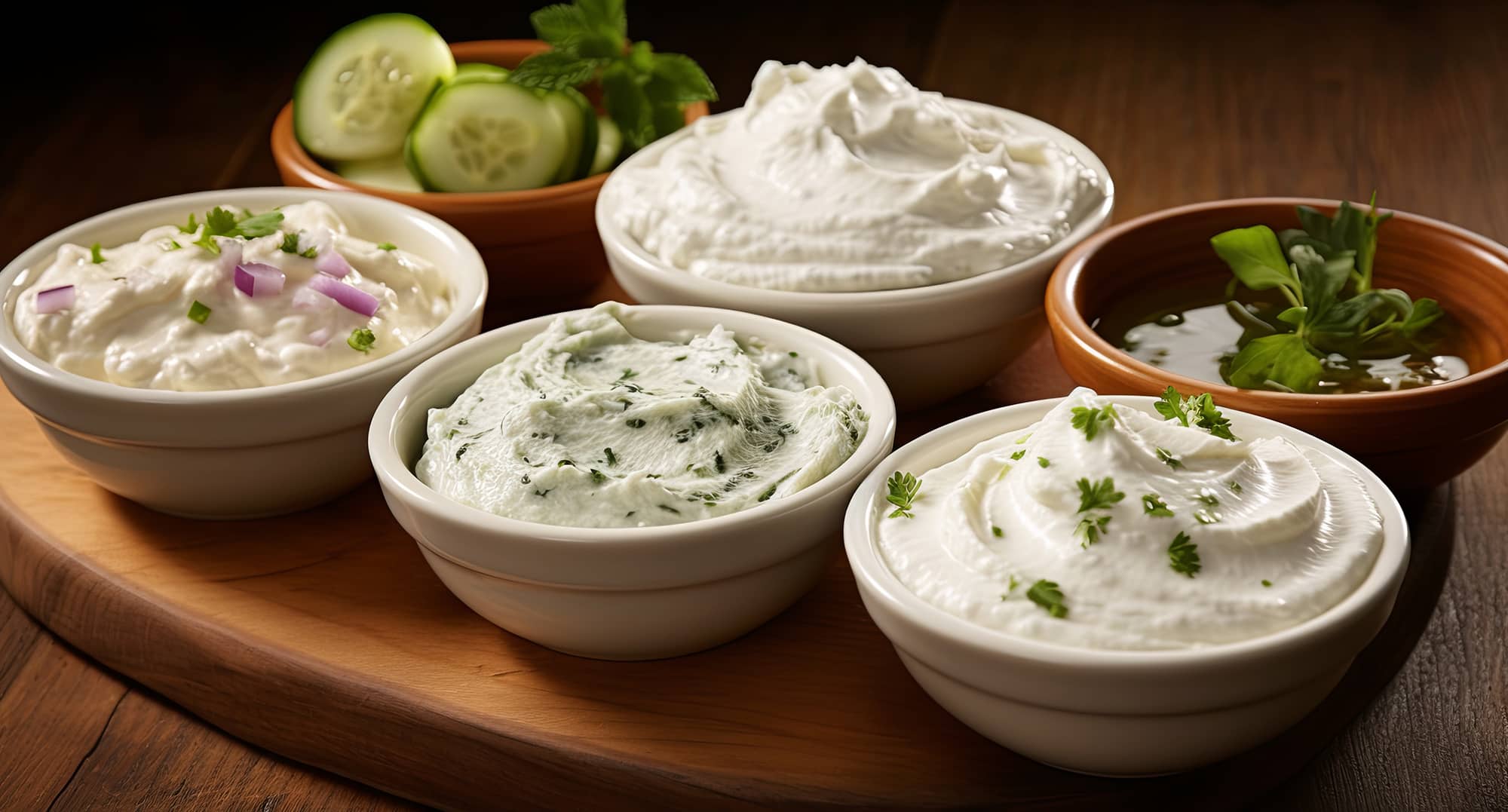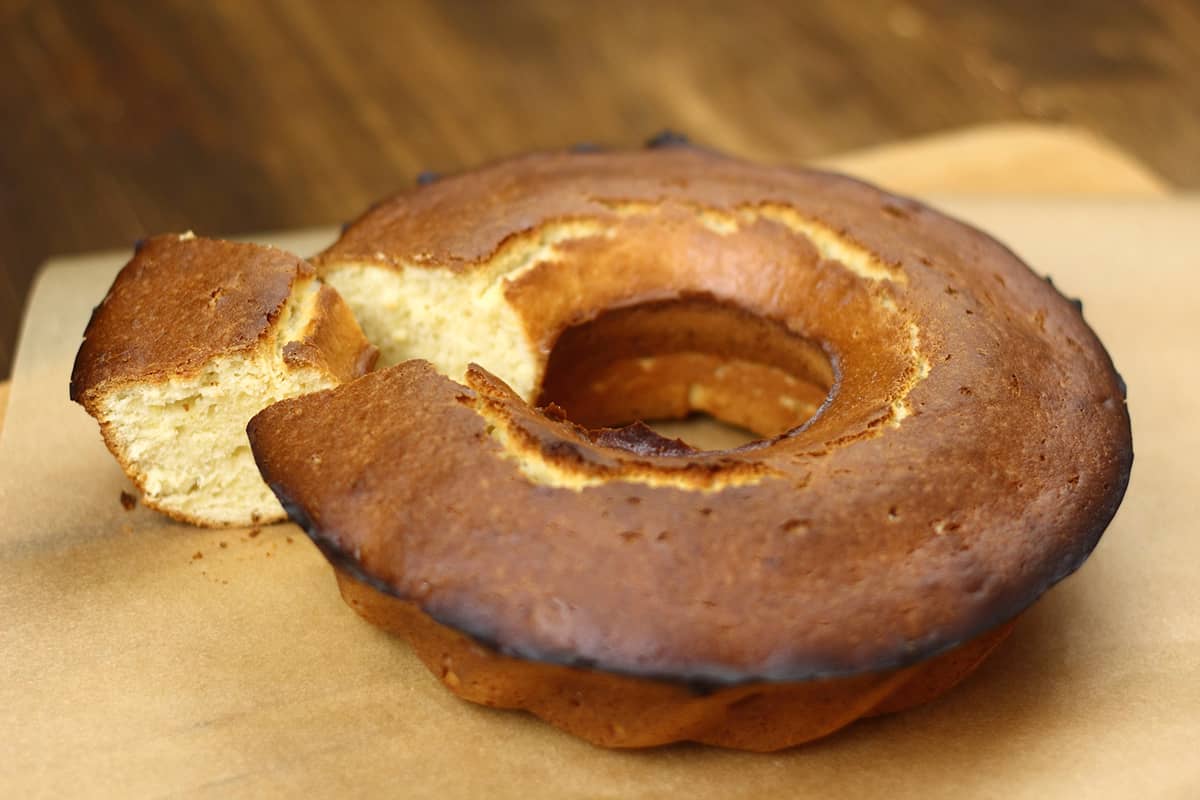
Greek Yogurt as a Substitute for Sour Cream
Thick, rich and tangy, yogurt and Greek yogurt are great candidates to substitute for sour cream. Whether you’re looking for better nutrition, a substitute for baking, or just want to keep from making an extra trip to the store, here are our best tips for a making the substitution successfully.
Greek Yogurt as a Substitute for Sour Cream can be readily used in Chilled Recipes. Yogurt – especially Greek yogurt – makes a terrific substitute for sour cream in dips, salad dressings, and garnishing chilled soups. It’s also perfect for marinades, either on its own or as a stand-in for buttermilk. With store bought yogurt, the flavor is generally tangier than sour cream, but if you love DIY, homemade yogurt can be tweaked to be milder than store bought using the Folding Proofer.

Easy, No-guilt Topping. Greek yogurt also makes a healthier, yet surprisingly convincing alternative to sour cream for finishing tacos and burritos. However, it’s best to add it at the table, rather than layering it directly into hot burrito fillings, because the lower fat and higher protein of Greek yogurt make it more susceptible to curdling than sour cream. For topping baked potatoes, combine Greek yogurt with a pinch of salt, fresh pepper, and chives or parsley.

How to Substitute Greek Yogurt for Sour Cream in Baking. According to Food 52 and other baking experts, Greek yogurt can be an acceptable substitute in baking too. Just keep in mind how much fat is in the rest of the recipe ingredients when you make the swap. There are two approaches to substituting Greek yogurt for sour cream in baking:

Sour Cream Greek Yogurt Cake
- Make a straight substitution — If you want to create healthier baked goods or just want a simple substitution, use an equal amount of yogurt in place of the sour cream. Whole milk yogurt works best and brings a big reduction in fat, plus more protein and calcium. Baked goods made with yogurt as a straight substitute for sour cream will turn out less tender, lighter in texture and have a tangier, less buttery flavor.
- Or make a “matching” substitution — If you want to make a substitution that will have a minimal effect on a baking recipe’s outcome, you can incorporate butter or oil to bring yogurt’s fat content up to that of sour cream. If butter is included as part of the substitution, it will also help bring the flavor of yogurt closer to sour cream (the cultures used to make sour cream produce diacetyl, the naturally-occurring flavor compound that tastes like butter). To make the substitution, incorporate the butter or oil with the other rich ingredients in the recipe and use the yogurt and water together in place of the sour cream. The chart below provides equivalents for one cup of sour cream.
Matching Sour Cream Substitutions for Baking – 1 Cup Equivalents
| Whole milk Greek yogurt | = | 3/4 C + 1 T (200 g) whole milk Greek yogurt | + | 3 T / 42 g butter | + | 2 tsp / 10 ml water |
|---|---|---|---|---|---|---|
| Nonfat Greek yogurt | = | 3/4 C (184 g) nonfat Greek yogurt | + | 4 T / 57 g butter | + | 1 T / 15 ml water |
| Whole milk plain yogurt | = | 3/4 C + 1 T (200 g) whole milk plain yogurt | + | 3 T / 42 g butter | + | no extra water |
| Nonfat plain yogurt | = | 3/4 C (184 g) nonfat plain yogurt | + | 4 T / 57 g butter | + | 1 T / 15 ml water |
| Nonfat Greek yogurt | = | 3/4 C + 1 T (200 g) nonfat Greek yogurt | + | 3 T / 45 ml vegetable oil | + | 1 T / 15 ml water |
| Nonfat plain yogurt | = | 3/4 C + 1 T (200 g) nonfat plain yogurt | + | 3 T / 45 ml vegetable oil | + | 2 tsp / 10 ml water |
Note: Substitutions are based on the USDA National Nutrient Database, individual brands may vary.
The substitutions are based on equivalent water and milkfat content, which for most baking recipes are the more important components to match. They add up to slightly more than one cup due to yogurt’s higher protein content vs. sour cream, but this should not negatively impact a baked good’s outcome.
Can Yogurt Work in Sauces and Soups? Any low fat dairy will curdle if combined with acid and heated, so yogurt – which is both acidic and lower in fat – is particularly susceptible to curdling. It’s best to avoid adding any yogurt directly to simmering sauces or soups. Heavy cream is the least likely to curdle and is the traditional choice to add to bubbling hot foods that also contain acids such as wine, tomatoes or vinegar.
To use Greek yogurt in place of heavy cream in a recipe like beef stroganoff, cook the recipe until everything is finished without adding the dairy. Then remove the hot soup or sauce from the heat and allow to cool to a warm serving temperature. Put the yogurt into a separate bowl and gradually stir in some of the warm sauce, then add the warmed yogurt to the cooled sauce and serve. Less risky and easier yet, dollop the yogurt on top of individual servings as a garnish.
Nutritional Comparison of Yogurt and Sour Cream
| Table header 0 | Water | Butterfat | Protein | Calories / 1 T | Fat / 1 T |
|---|---|---|---|---|---|
| Sour Cream | 74.5% | 20% | 2.1% | 23.0 | 2.4 |
| Whole milk Greek yogurt | 82.4% | 5% | 9.0% | 13.6 | 0.7 |
| Nonfat Greek yogurt | 85.1% | 0% | 10.2% | 8.3 | 0.1 |
| Whole milk plain yogurt | 87.9% | 3% | 3.5% | 8.6 | 0.5 |
| Nonfat plain yogurt | 85.2% | 0% | 5.7% | 7.9 | 0.0 |
More on Yogurt
- How to make creamy, mild custard-style yogurt at home
- How to make homemade Greek Yogurt
- How to maintain a yogurt culture
- Learn more about the Folding Proofer


















Be the first to comment